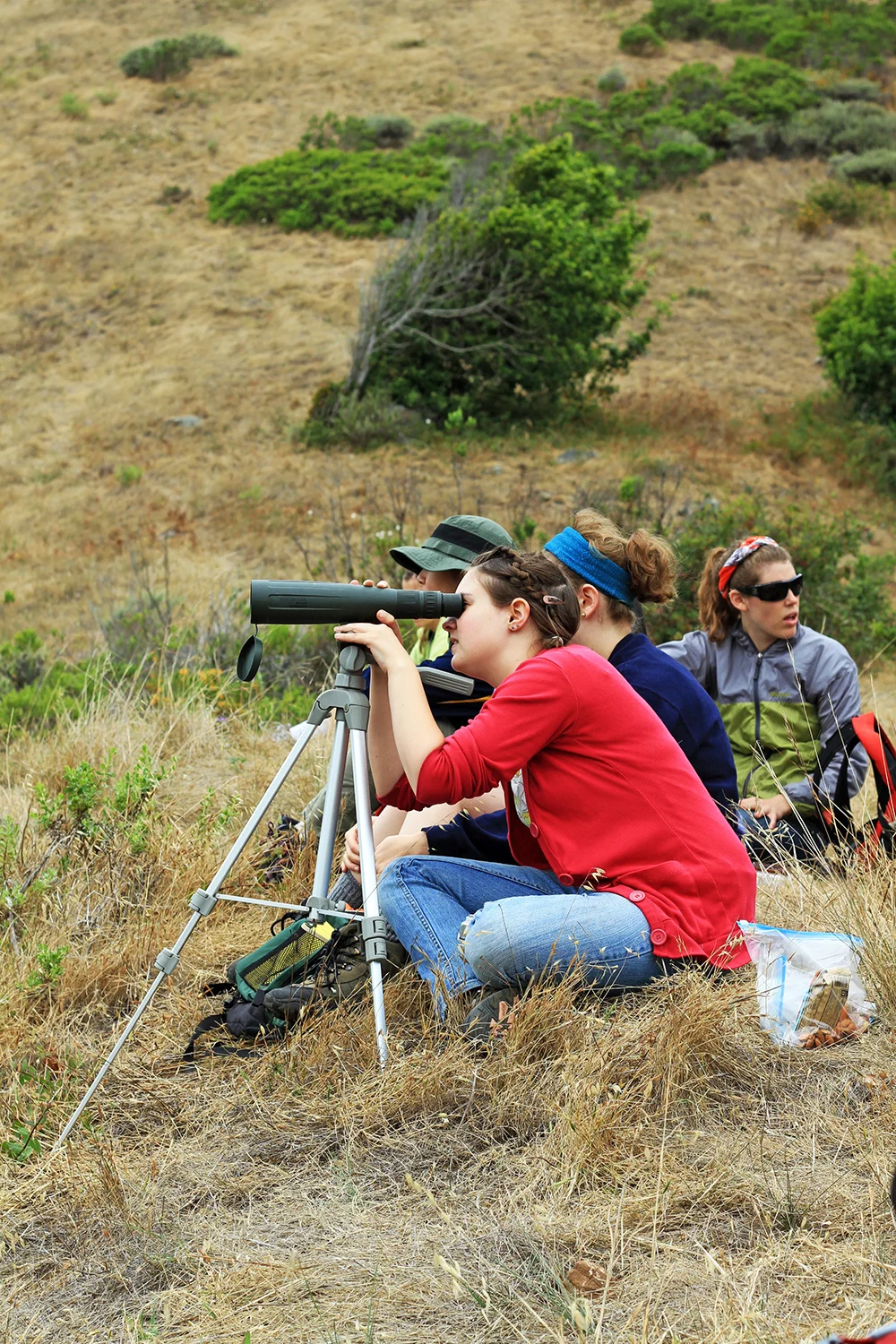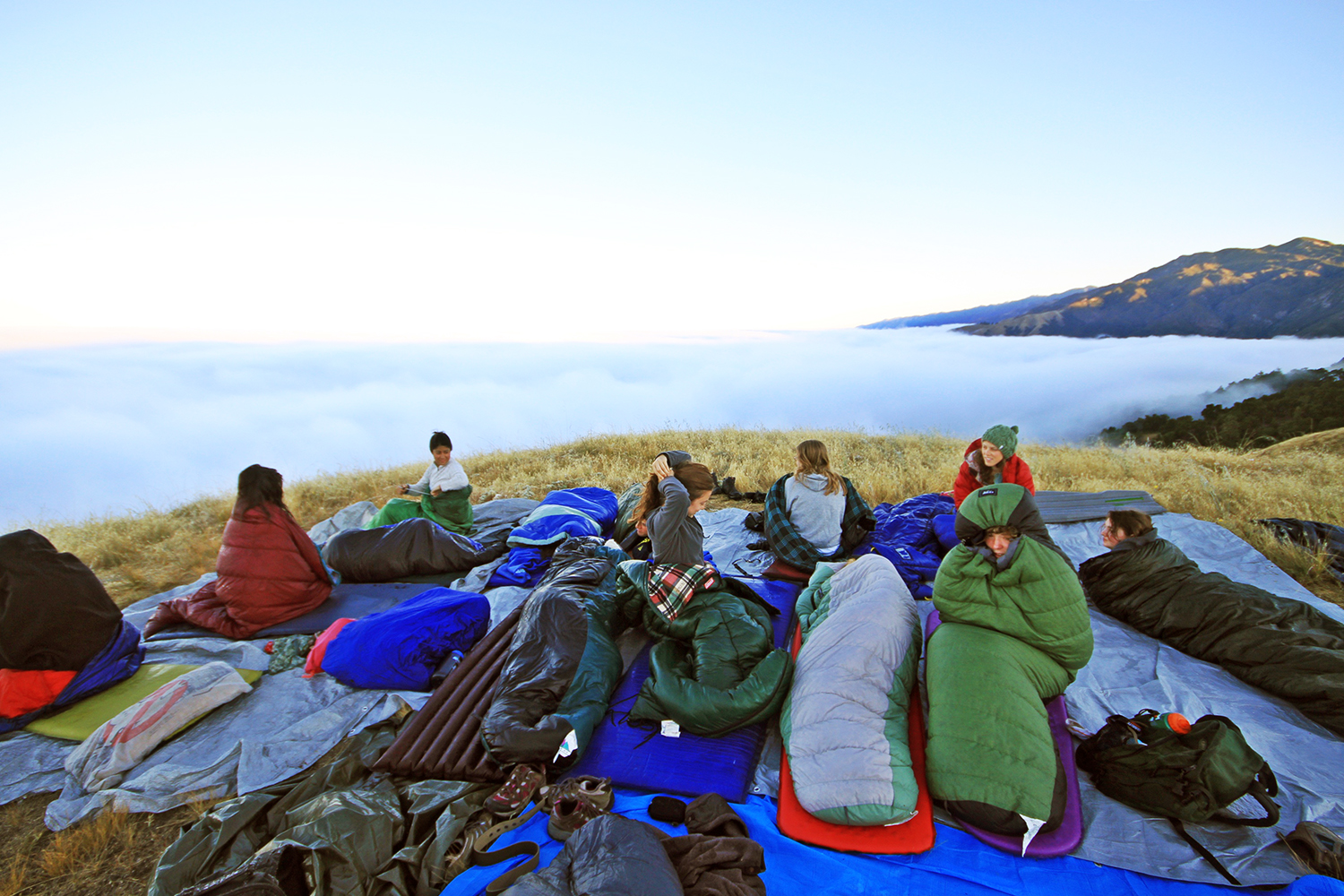Program Details
Location: Santa Cruz, CA
Dates: Postponed till Summer 2026
Applications: Accepted on a rolling admission basis
Accommodations: Primarily camping
Credits: 5 quarter credits or 3.35 semester credits
Language: English instruction
Courses: Environmental Wildlands Studies
Prerequisites: One college level course in environmental studies, environmental science, ecology or similar. 18 years of age
Program Costs
Big Sur Summer 2026
To Be Announced
The Program
With its pristine marine ecosystem, clear streams, wild canyons, and relative absence of human impacts, the Big Creek Reserve remains an area of rare, unspoiled grandeur in an otherwise rapidly developing California coastline. In Big Creek’s tapestry of environments, researchers are beginning to search for answers to key ecological questions. How do animal and plant communities in pristine wildlands develop and change over time? How do protected Big Sur populations compare to those found outside reserve boundaries? How can long term field research help us better manage Big Sur’s irreplaceable natural resources?
Through participation in hands-on research projects we will learn important sampling protocol and be part of exciting new efforts to address these pressing environmental questions. Field study projects will be selected from research priorities that include firsthand assessments of sea otter and seal population distributions, ecological mapping and surveys of key stream and intertidal habitats, and on-site studies of Big Creek’s biologically diverse animal and plant communities. These important projects provide unique opportunities to gain an enriched understanding of Big Sur ecology, provide hands on experience in conducting ecological research and better manage Big Sur’s natural resources into the future.
More Details
Syllabus
Manual
Adrienne Frisbee
Lead instructorMS in Soil and Water Science, University of Florida, 2007
Adrienne Frisbee is a biologist with a diverse set of ecological interests ranging from birds and plants to physical drivers that shape ecosystems, such as soil, water, and fire. Her studies have been conducted in a variety of systems, including the Alaskan tundra, Florida wetlands, tall grass prairies of Oklahoma, and the sandy shores of New York. She has also spent a considerable amount of time exploring deserts, wetlands, and grasslands in California. Her recent work in California has involved conducting field surveys on salmon in freshwater streams and native oysters in estuaries. She is also passionate about native plant restoration and maintaining native plant communities. While working at NASA Ames, Adrienne assisted with education programs and discovered her love for teaching. She is currently an associate biology faculty member at Cabrillo College and West Valley College. As an educator, Adrienne aspires to make science engaging, accessible, and fun for all, and she is particularly passionate about field courses. Adrienne leads our Big Sur program.



















